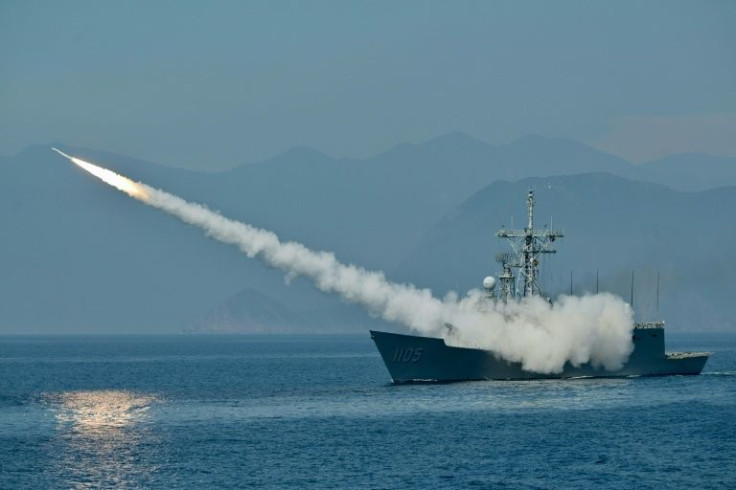China Invasion Of Taiwan May Not Happen This Decade, Says Pentagon Official

A U.S. Department of Defense official said a Chinese invasion of Taiwan may not happen in this decade.
In a conversation organized by the Hudson Institute regarding the security of the Indo-Pacific region, Dr. Ely Ratner, the assistant secretary of defense for Indo-Pacific security affairs, said that if the deterrence remains "strong," it will prevent any attempts of a Chinese attack against the self-governing island.
Ratner noted that the U.S. is working with its allies and partners in the region to keep any Chinese aggression in check.
"I think what we are aiming to do is to ensure that we are working on our own capabilities, but also with allies and partners to ensure that that kind of coercion and aggression doesn't succeed," he said.
Ratner said the focus of the U.S.-led deterrence is to let Chinese officials continue to "think today is not the day."
The defense official also recalled being asked by Republican Sen. Marco Rubio of Florida at a recent foreign relations committee hearing if there was any chance of the U.S. reaching the end of this decade without China invading Taiwan and "without a breakdown" in the deterrence.
Ratner said he told Rubio, "Yes, I think we do."
Ratner admitted that sustaining the deterrence is "not going to be easy" as China's "capabilities are growing" and its "ambition is there." But he said he believes it will be possible to make it to the end of the decade without a Chinese invasion of Taiwan if the U.S. continues to ensure that the "costs of aggression remain unacceptably high" to Beijing.
"I think we have a pathway to do that, through our own development of our own capabilities, revision of our posture, introduction of new operational concepts, and then all of the work we're doing with allies and partners. Then, of course, the entire whole of government effort, which is as important as the military piece, economics, diplomacy, and others that reinforce that deterrence. So, I think it's doable," he added.
Ratner's assessment largely differs from the prediction made by four-star U.S. Air Force Gen. Mike Minihan, who suggested that the U.S. would be at war with China over Taiwan by 2025.
In his controversial memo, obtained by NBC News, Minihan suggested that China would have an opportunity to attack Taiwan when the U.S. will be "distracted" by the presidential elections in 2024.
Minihan, who heads the Air Force's Air Mobility Command, has already instructed its personnel to prepare by firing a "clip" at a target and aiming "for the head," according to the memo.
Moreover, a recent survey by the Atlantic Council's Scowcroft Center for Strategy and Security showed that most leading global strategists and foresight practitioners agree that China will seek to "forcibly retake" Taiwan within the next decade.
Amid the possibility of a Chinese invasion and Beijing's increasing pressure against the island, the U.S. has been pouring more assistance into Taiwan.
On Wednesday, the State Department approved the potential sale of $619 million worth of military weapons and equipment to Taiwan.
The package includes 200 anti-aircraft Advanced Medium Range Air-to-Air Missiles (AMRAAM) and 100 AGM-88B high-speed anti-radiation missiles (HARM).
Taiwan's Ministry of National Defense thanked the U.S. for the new military assistance, saying it would help "effectively defend the airspace" against any threats from China.

Related Articles





















